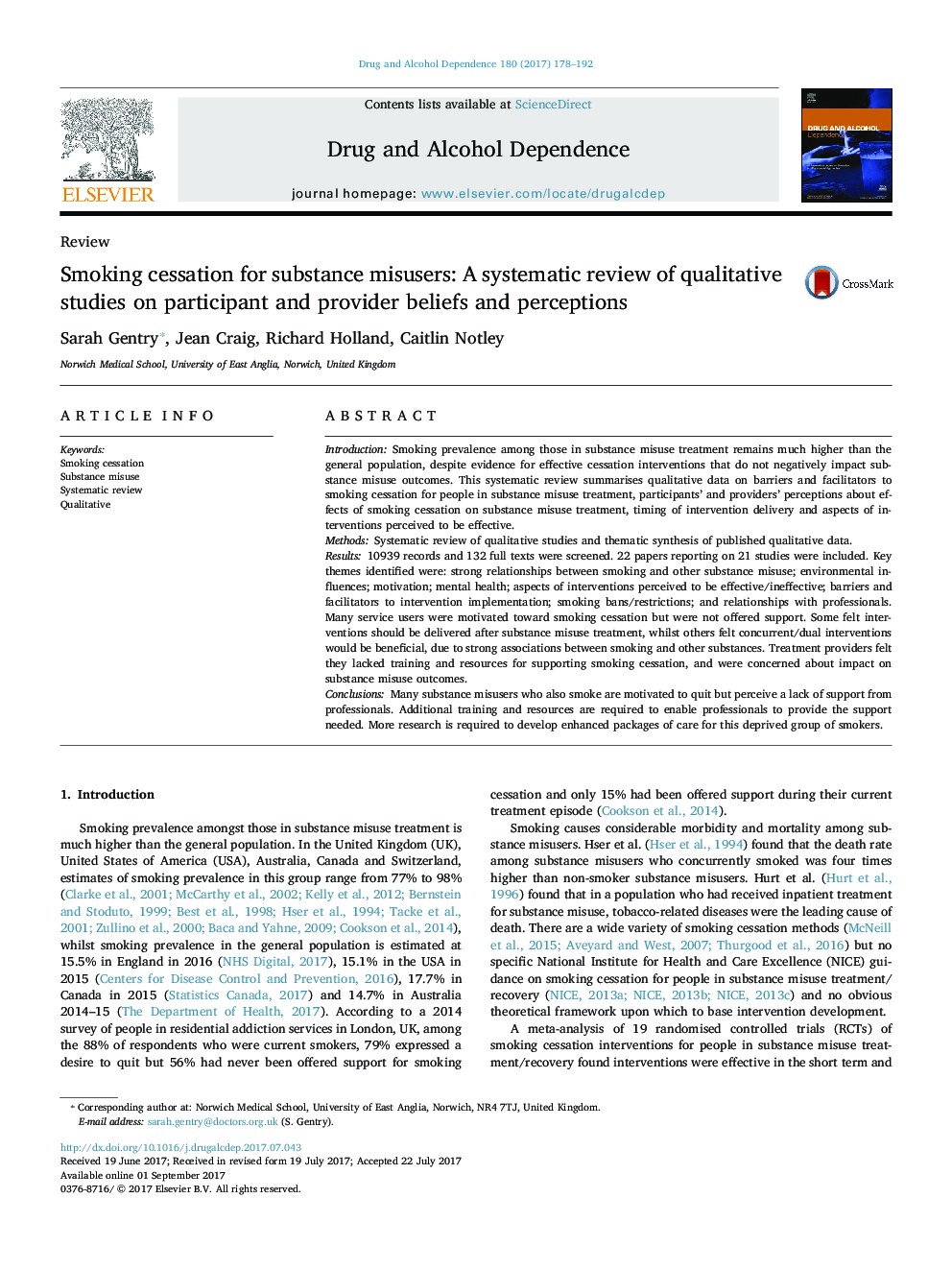| Article ID | Journal | Published Year | Pages | File Type |
|---|---|---|---|---|
| 5119835 | Drug and Alcohol Dependence | 2017 | 15 Pages |
â¢Many substance misusers who also smoke are motivated to quit but lack support.â¢Professionals require training and resources to support smoking cessation.â¢Provision of smoking cessation support when smoking bans are in place is key.â¢Development of interventions targeting the unique needs of this group is needed.
IntroductionSmoking prevalence among those in substance misuse treatment remains much higher than the general population, despite evidence for effective cessation interventions that do not negatively impact substance misuse outcomes. This systematic review summarises qualitative data on barriers and facilitators to smoking cessation for people in substance misuse treatment, participants' and providers' perceptions about effects of smoking cessation on substance misuse treatment, timing of intervention delivery and aspects of interventions perceived to be effective.MethodsSystematic review of qualitative studies and thematic synthesis of published qualitative data.Results10939 records and 132 full texts were screened. 22 papers reporting on 21 studies were included. Key themes identified were: strong relationships between smoking and other substance misuse; environmental influences; motivation; mental health; aspects of interventions perceived to be effective/ineffective; barriers and facilitators to intervention implementation; smoking bans/restrictions; and relationships with professionals. Many service users were motivated toward smoking cessation but were not offered support. Some felt interventions should be delivered after substance misuse treatment, whilst others felt concurrent/dual interventions would be beneficial, due to strong associations between smoking and other substances. Treatment providers felt they lacked training and resources for supporting smoking cessation, and were concerned about impact on substance misuse outcomes.ConclusionsMany substance misusers who also smoke are motivated to quit but perceive a lack of support from professionals. Additional training and resources are required to enable professionals to provide the support needed. More research is required to develop enhanced packages of care for this deprived group of smokers.
